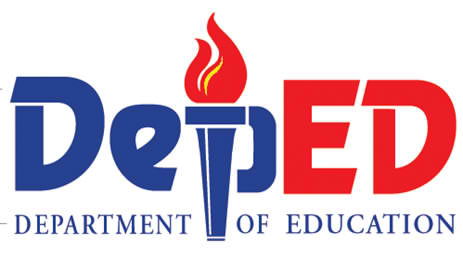MANILA, Philippines — The government would need to spend an estimated P550 billion to capacitate the country’s education sector in making a healthy and safe environment for all students and teachers in view of the COVID-19 pandemic, an education official said.
During the Senate basic education committee hearing on Thursday, Department of Education (DepEd) Undersecretary for Finance Annalyn Sevilla said the amount would allow for the procurement of health necessities for 22 million students and one million teachers as well as provide them with learning resources, among others.
“The hygiene kits, preparation for the school, repair, water, sanitation, all of these has cost implication…To be honest, kung gagawin po naming universal yung computation, the need will be more than what we have for the 2020 budget. Meaning, it might be beyond P500 billion,” Sevilla said.
“Kung walang limitation [if there is no limitation], we will provide everything. We came up with the P550 billion. But of course, that’s so impossible,” she added, noting that the government is continuously looking for more funds to sustain the country’s COVID-19 response.
But Sevilla assured DepEd is working on revising the financial plan to minimize the cost and work within the available funds.
“I think what we really need to have are two major activities. One is the compliance with the minimum health standards so our schools will be safe and second is the learning resources,” she said.
“We’ll just have to balance kung ano pa yung kailangan [what other means needed] as priorities and of course kung ano po yung kaya ng pondo natin [what the funds are capable],” she said.
According to Sevilla, DepEd will conduct a survey among students and parents to see what the actual scenario would be when school opens on August 24 so that adjustments in the financing can be made.
“Kaya po kami gagawa ng [That is why we will make] another registration process is to get the idea on how many of these students will have the blended learning, how many have the capacity to learning online, how many will need the modules and how many will be doing the home-based schooling,” she explained.
“Ito po ay aming kailangan dahil hindi po pwede na computin natin sa lahat yung mga kinakailangan. But we will only have the figure once we get the responses from our learners and parents which will happen in June,” she added.
Withdrawn budget
Sevilla, meanwhile, told senators that a total of P8.2 billion have so far been withdrawn by the Department of Budget and Management (DBM) from DepEd’s budget for the augmentation of the government COVID-19 funds.
“The P5 billion is from our last mile school program, P1.4 billion from our voucher program and other programs na hindi pa po nari-release [it is not yet released] in the 2019 funds and the 2020 programs were also not released and officially we were informed that a total of P8.2 billion was already taken from out budget,” she said.
She also mentioned that she asked the DBM not to hold future withdrawal of funds pending the finalization of DepEd’s learning continuity plan.
Identify need per locality
Senator Sherwin Gatchalian, who led the hearing as chair of the Senate basic education committee, said DepEd would need determine the specific need of schools per locality to ensure that the right amount of funds are allocated.
“Sinasabi ng DepEd na [What the DepEd is saying] P550 billion yun. Definitely, that’s a big amount. That’s why the most practical is tignan anong pangangailangan [see what else are needed] per school at per location,” he told reporters in an on online interview.
“For example, nakita ko ang Ilocos, mababa ang kanilang cases doon. So ano ang dapat na standards na ilalagay natin doon para masigurado natin na ang budget na ibibigay sa kanila ay tama lang?” he added.
(I see Ilocos has low cases, so what standards are we going to implement there to ensure that the budget is just enough for them?)
DepEd earlier set the opening of classes on August 24 and will be offering educators a “menu of learning delivery options” that would include online and printed materials as well as use of different platforms.
Gatchalian, during the online interview with reporters, noted that there are three alternative delivery modes identified by DepEd: blended learning, distance learning and homeschooling.
“Depende sa location pwede kang pumili dito sa tatlo. Ang blended learning ay in simple terms, meron kang physical at meron kang online or distance. Ang distance learning ay basically using other forms of communication such as radio, TV and the net,” he explained.
“Ang homeschooling ay purely homeschooling. But all of these will require teacher’s training dahil kung ito ang magiging mode natin for (School Year) 2020, kailangan talagang i-train ang teachers natin dahil hindi naman ito nagawa in the past,” he added.
JPV


